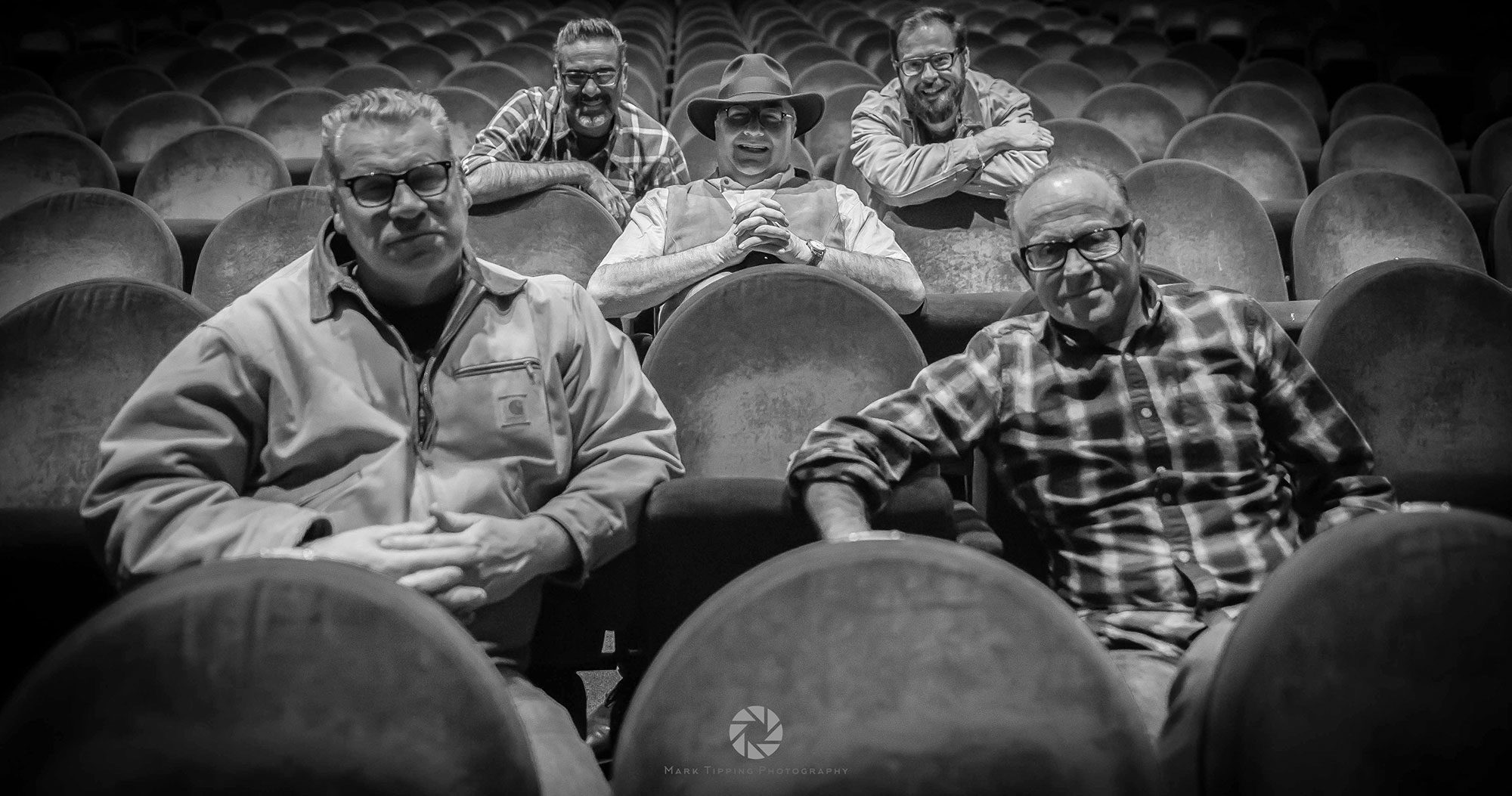Silent cinema was never silent. Trust me I’m a Doctor. Before sound arrived in Hollywood in 1928 the movies always had some noise associated with them and the Dodge Brothers are steeped in that tradition; making rackets to stories to raise an eyebrow, infect your feet with rhythm, and prompt maybe a laugh or a tear. With our fifth Dodge Brother Neil Brand, expert silent pianist and composer, we fly the flag for silent cinema.
We play to silent films at the finest venues in the land, The Barbican, The National Film Theatre, BFI, The National Media Museum and anywhere that the high art of playing live to silent film is appreciated (including sell out gigs in Lapland & Norway). In 2014 The Dodge Brothers were the first band to accompany a silent film at Glastonbury Festival.
Our approach is simple: we derive our music from what might have been played in the cinemas in towns such as Clarksdale Mississippi, or Troy Alabama.
We bring the jug band/skiffle style to westerns and hobo films. With Louise Brooks and Wallace Beery in Beggars of Life (William Wellman,1928) we take as our inspiration the music of Bukka White (Po’ Boy), Charlie Poole (Goodbye Booze) and Furry Lewis (Kassee Jones). We also include some of our own songs (written in 1928 of course) and look to the protest songs of Woody Guthrie for inspiration for the Soviet gem The Ghost Who Never Returns (Abram Room, 1928). We draw on the eternal ‘Fair and Tender Ladies’ and gambling songs for the noble William S. Hart western White Oak (Lambert Hillyer, 1921).
We head west with the incomparable Hell’s Hinges (Charles Swickard, 1916) another W.S. Hart western. Hart plays Blaze Tracey a bad guy turned good by the love a true and spiritual woman. The finale rivals High Plains Drifter and Unforgiven as Blaze wreaks vengeance on the sin-ridden town they call Hell’s Hinges. Our own western motifs (copied years later by Ennio Morriconi), are accompanied by the raunchy vamps of Jelly Roll Morton and the powerful Charlie Patton hymn ‘Oh Death’.
The latest addition to our repertoire is German director F.W. Murnau’s deeply moving City Girl. Shot in 1928 but released in 1930 this is the original 90 minute silent version that Murnau wanted released. It is the story of Chicago waitress Kate who falls in love with a young farmer Lem who is in the city to sell his father’s crop. They marry and return to his farm to a less than warm welcome by Lem’s stern father. Murnau’s depiction of the city contrasted with his use of expansive landscapes and astonishing camera work are the backdrop for this intimate story of a couple whose love is tested by his family and by the brute force of nature. We incorporate majestic Copland-esque celebrations of the broad midwestern golden fields as well as Chicago blues motifs to accentuate Murnau’s city/country themes to offer the sonic background this touching and poetic film requires.
Each and every performance is unique. So check out the listings, we may be barnstorming a cinema near you, with washboards, banjos and a whole lotta heart. You heard it here first!
White Oak Lambert Hillyer 1921
Beggars of Life William Welman 1928
The Ghost That Never Returns Abram Room 1929
Hell’s Hinges Charles Swickard 1916
City Girl F. W. Murnau 1930
“With their wistful, sometimes mournful, sometimes dangerous, sometimes galloping blue-grass emotional attachment to the story that was unfolding up there on the silver screen, my evening in a school hall, became profoundly whole. There are those rare moments in life where you are privileged to bear witness to a unique event, this, for me was one of them. Should they saddle up and recreate this triumph at any time in the future, then my advice to anyone, is buy your ticket early.” – Richard O’Brien (Rocky Horror Picture Show)
“I thought the Dodge Brothers were terrific, and Beggars of Life could hardly have been received more enthusiastically.” – Kevin Brownlow, Oscar winner, writer, producer and director of award winning documentary series on Silent Cinema Hollywood the Pioneers
“Never has a film and a band been more perfectly matched than ‘Beggars of Life’ and the Dodge Brothers – deep dish Americana, rail-riding hoboes and Louise Brooks – they were made for each other.” – Bryony Dixon, curator of silent film, British Film Institute.

